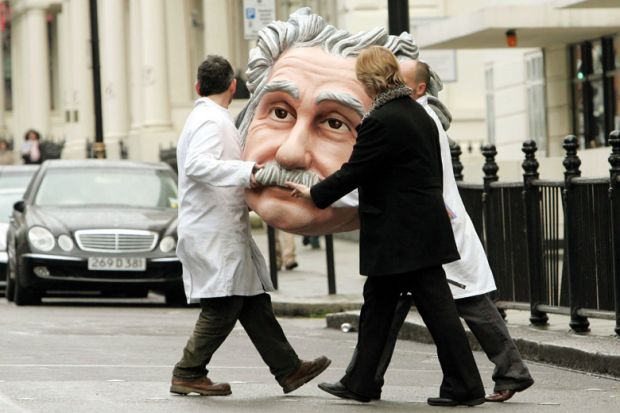In physics, perhaps more than in any other academic discipline, the giants of the field are lionised long after death: the achievements of Albert Einstein and Isaac Newton in extending our understanding of the universe have elevated them to near-immortal status.
But what of less exalted scientists, who cannot aspire to such heights: how should they be remembered? A new study suggests that, if they could have their way, they would simply want to be thought of as having been nice people.
Joseph Hermanowicz, professor of sociology at the University of Georgia, interviewed 60 physicists working in US higher education about how they would like to be regarded in memoriam by colleagues, arguing that it would offer a new vantage point on how prestige is constructed in the academy.
Writing in The Journal of Higher Education, Professor Hermanowicz says that he discovered two distinct schools of thought. Many physicists wanted to be remembered for their professional achievements: “As a leader of something,” one interviewee said. “Something like ‘he’s the one who invented a theory’, like you would say Einstein invented relativity.”
Another respondent said that if he could do “something solid” in the development of physics and win the respect of colleagues, he could “die anytime”.
But many other interviewees said that they would be content to be remembered more for their personal qualities: for having been honest, congenial or hard-working.
Significantly, Professor Hermanowicz found a strong correlation between physicists’ professional standing and how they wished to be remembered.
Nearly three-quarters of academics working in top-ranking physics departments wanted to be remembered for their intellectual accomplishments, while less than one in five said that they would be happy to be commemorated for their personal attributes. In lower-ranked departments, only one in three physicists hoped to be remembered as leaders in the field, with nearly 60 per cent content for their personal characteristics to form their epitaph.
The most productive scientists in terms of publications were, likewise, those who most wanted to be remembered for their achievements in physics.
Professor Hermanowicz suggests that less successful physicists focused on how they went about their work as opposed to the results of their work “to prevent admonition from colleagues…who are more successful”.
“By invoking claims to a moral status, a scientist – relegated to a location peripheral to the major activity at the centre of science – provides an excuse as well as an explanation for not having fully realised one’s own ego,” he says. “Remembered as ‘being good’ by others in the profession thus becomes compensation for comparative failure.”
POSTSCRIPT:
Print headline: When I go, I want to hear a big bang
Register to continue
Why register?
- Registration is free and only takes a moment
- Once registered, you can read 3 articles a month
- Sign up for our newsletter
Subscribe
Or subscribe for unlimited access to:
- Unlimited access to news, views, insights & reviews
- Digital editions
- Digital access to THE’s university and college rankings analysis
Already registered or a current subscriber? Login




